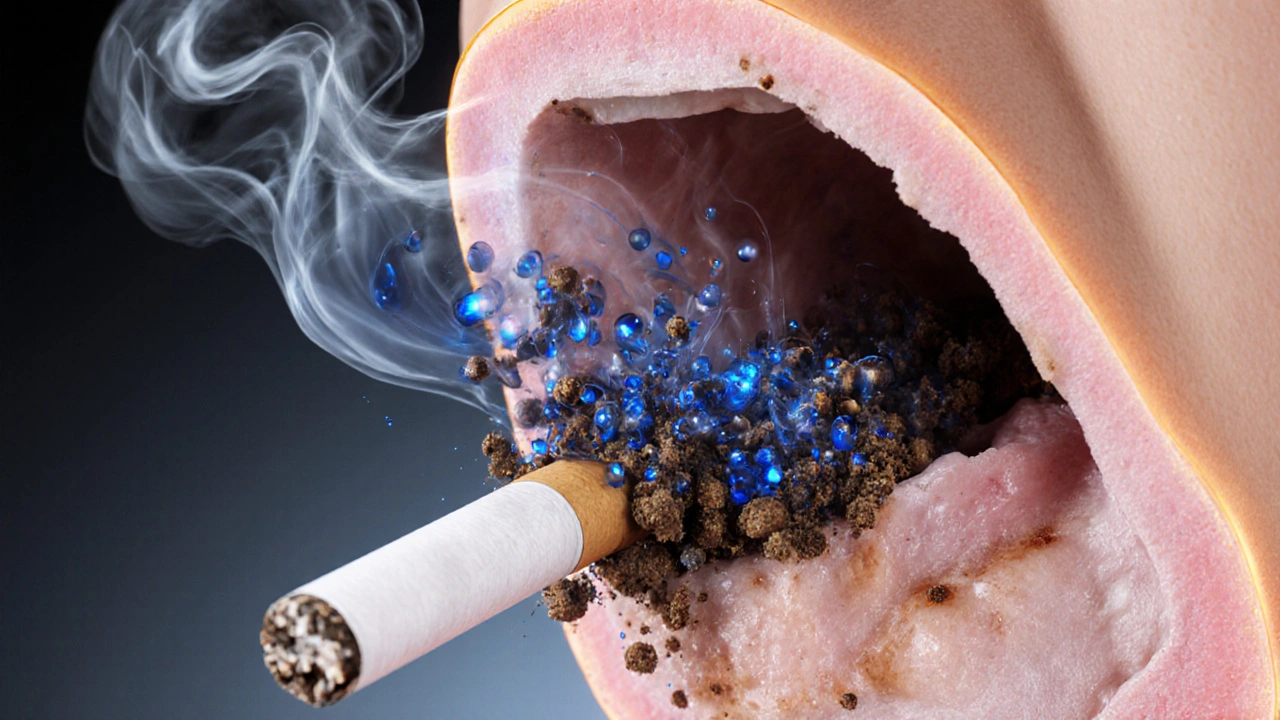Smoking: Risks, How It Affects Meds, and Practical Ways to Quit
Smoking still kills more people than many realize. It damages lungs, raises heart attack risk, and makes chronic lung disease worse. If you're thinking about quitting or worried about how smoking changes the way medicines work, this page gives clear, useful steps you can use right away.
Why quitting matters now
Quitting lowers your chance of heart attack and stroke within months. Your lungs start clearing mucus in days. Cravings are strong at first but get easier in weeks. Want a fast win? Pick a quit date within two weeks and tell one person who will check in.
Secondhand smoke harms kids and partners. Pregnant people who smoke risk complications for the baby. Cutting out smoking helps people around you as much as it helps you.
Quick quit tools that actually work
There are proven options: nicotine patches, gum, or lozenges; prescription meds like varenicline or bupropion; and behavioral support. Combining a nicotine patch with a fast-acting gum or lozenge often beats a single treatment. Varenicline tends to give the best quit rates in studies, but it has side effects for some people—so talk to a clinician.
Behavioral support matters. Phone quitlines, group programs, and short coaching calls increase your chances. Apps and text programs that send daily tips and reminders also help, especially during rough first weeks.
Practical tricks for cravings: delay 10 minutes, drink water, chew gum, go for a 5-minute walk, or practice deep breathing. Create a short plan: identify triggers (coffee, alcohol, stress), swap routines, and keep healthy snacks handy.
Expect withdrawal: irritability, trouble sleeping, and strong urges. Nicotine replacement lowers intensity and makes quitting manageable. Cravings usually peak in the first 72 hours and become much less frequent after 2–4 weeks.
How smoking changes your medicines
Smoking speeds up some drug-breakdown pathways in the liver. That means medicines like clozapine, olanzapine, and theophylline can be less effective in smokers. If you stop smoking, those drug levels can rise and cause side effects unless doses are adjusted. Always tell your doctor and pharmacist when you quit or start smoking—they may need to change your prescription.
Some drugs used to help people quit interact with other medications, so check before taking anything new. If you take blood thinners, psychiatric meds, or theophylline, a quick chat with your prescriber is smart when your smoking status changes.
Need help right now? Call your local quitline, see your doctor for medication options, and remove lighters and ashtrays from your home. Small changes add up fast: avoid trigger places for a few weeks and reward each smoke-free day.
Quitting isn’t easy, but it's the single best step you can take for long-term health. Use proven tools, get support, and keep your care team informed about changes so your medications stay safe and effective.
How Smoking Damages the Pharyngeal Mucous Membranes
Discover how smoking harms the throat's mucous membranes, the chemicals involved, health consequences, and ways to recover after quitting.
How Smoking Harms Your Eyes: The Real Dangers of Tobacco to Your Vision
Think cigarettes just hurt your lungs? Smoking is brutal on your eyes, leading to sight-stealing problems like cataracts and macular degeneration. It's one of the biggest preventable causes of adult blindness worldwide. Learn how tobacco attacks every part of your vision, what the science says, and the most effective tips to safeguard your eyes from the effects of smoking.


